
Contributors include Clark A. Elliott, Owen Gingerich, Dieter Hoffmann, Dominque Pestre, Robert W. Seidel, and V. Betty Smocovitis.

Theodor W. Adorno is recognized as one of the twentieth century’s most prominent social theorists. Though best known for his association with the Frankfurt School of critical theory, Adorno began his career as a composer and successful music critic.
Comprehensive and illuminating, Orpheus in the Underworld centers on Adorno’s concrete and immediate engagement with musical compositions and their interpretation in the concert hall and elsewhere. Here, Adorno registers his initial encounters with the compositions of the Second Viennese School, when he had yet to integrate them into a broad aesthetics of music. Complementarily essays on Bela Bartók, Jean Sibelius, and Kurt Weill afford insight into his understanding of composers who did not fit neatly into the dialectical schema propounded in the Philosophy of New Music. Additionally, essays on recording and broadcasting show Adorno engaging with these media in a spirit that is no less productive than polemical and focused as sharply on their potentialities as on their shortcomings.
Orpheus in the Underworld offers a captivating exploration of Adorno’s musical compositions, shedding new light on his understanding of influential composers and his critical perspectives on recording and broadcasting.

Occasionally zany zoological lore.
Aelian (Claudius Aelianus), a Roman born ca. AD 170 at Praeneste, was a pupil of the rhetorician Pausanias of Caesarea, and taught and practiced rhetoric. Expert in Attic Greek, he became a serious scholar and studied history under the patronage of the Roman empress Julia Domna. He apparently spent all his life in Italy where he died after AD 230.
Aelian’s On the Characteristics of Animals, in 17 books, is a collection of facts and beliefs concerning the habits of animals drawn from Greek authors and some personal observation. Fact, fancy, legend, stories, and gossip all play their part in a narrative that is meant to entertain. If there is any ethical motive, it is that the virtues of untaught yet reasoning animals can be a lesson to thoughtless and selfish mankind. The Loeb Classical Library edition of this work is in three volumes.
The Historical Miscellany (LCL 486) is of similar nature. In 14 books, it consists mainly of historical and biographical anecdotes and retellings of legendary events. Some of Aelian’s material is drawn from authors whose works are lost.
Aelian’s Letters—portraying the affairs and country ways of a series of fictitious writers—offer engaging vignettes of rural life. These are available in LCL 383.

Occasionally zany zoological lore.
Aelian (Claudius Aelianus), a Roman born ca. AD 170 at Praeneste, was a pupil of the rhetorician Pausanias of Caesarea, and taught and practiced rhetoric. Expert in Attic Greek, he became a serious scholar and studied history under the patronage of the Roman empress Julia Domna. He apparently spent all his life in Italy where he died after AD 230.
Aelian’s On the Characteristics of Animals, in 17 books, is a collection of facts and beliefs concerning the habits of animals drawn from Greek authors and some personal observation. Fact, fancy, legend, stories, and gossip all play their part in a narrative that is meant to entertain. If there is any ethical motive, it is that the virtues of untaught yet reasoning animals can be a lesson to thoughtless and selfish mankind. The Loeb Classical Library edition of this work is in three volumes.
The Historical Miscellany (LCL 486) is of similar nature. In 14 books, it consists mainly of historical and biographical anecdotes and retellings of legendary events. Some of Aelian’s material is drawn from authors whose works are lost.
Aelian’s Letters—portraying the affairs and country ways of a series of fictitious writers—offer engaging vignettes of rural life. These are available in LCL 383.

Occasionally zany zoological lore.
Aelian (Claudius Aelianus), a Roman born ca. AD 170 at Praeneste, was a pupil of the rhetorician Pausanias of Caesarea, and taught and practiced rhetoric. Expert in Attic Greek, he became a serious scholar and studied history under the patronage of the Roman empress Julia Domna. He apparently spent all his life in Italy where he died after AD 230.
Aelian’s On the Characteristics of Animals, in 17 books, is a collection of facts and beliefs concerning the habits of animals drawn from Greek authors and some personal observation. Fact, fancy, legend, stories, and gossip all play their part in a narrative that is meant to entertain. If there is any ethical motive, it is that the virtues of untaught yet reasoning animals can be a lesson to thoughtless and selfish mankind. The Loeb Classical Library edition of this work is in three volumes.
The Historical Miscellany (LCL 486) is of similar nature. In 14 books, it consists mainly of historical and biographical anecdotes and retellings of legendary events. Some of Aelian’s material is drawn from authors whose works are lost.
Aelian’s Letters—portraying the affairs and country ways of a series of fictitious writers—offer engaging vignettes of rural life. These are available in LCL 383.
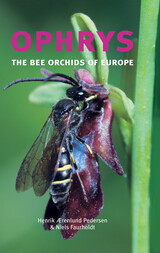
Ophrys – the Bee Orchids of Europe is an easy to use, comprehensive introduction to the plants found in Europe. It can be used as a field guide (with keys, descriptions and numerous colour photographs) and a standard reference (with chapters on structure, biology, evolution and conservation). The chapter by Richard Manuel gives ample guidelines for cultivation for growers, and is especially helpful for conservationists introducing plants back into the wild.
The classification is based on a broad species concept, and offers an alternative to the finely split classifications of the genus that prevail in most recent field guides.
Finally, the chapter ‘recommended Ophrys excursions’ is ideal for planning field trips."
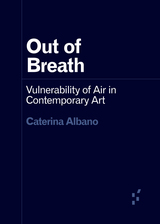
Explores the intrinsic relation of life to air, and breathing, through contemporary art
In Out of Breath, Caterina Albano examines the cultural significance of breath and air to a wide array of forces in our midst, including economy, politics, infection, and ecological violence. Through a consideration of recent art practices and projects, including the dance project Breath Catalogue, which makes visible the breathing patterns of dancers, and Forensic Architecture’s Cloud Studies video, which investigates eight different kinds of clouds from airstrikes to herbicides to tear gas, Albano focuses on breath as both an intuitive process and a conveyer of meanings.
Conceived in response to the Covid-19 pandemic and systemic inequalities that it has laid bare, Out of Breath shows the potential of artistic practices to mobilize affect as a form of cultural and political critique.
Forerunners is a thought-in-process series of breakthrough digital works. Written between fresh ideas and finished books, Forerunners draws on scholarly work initiated in notable blogs, social media, conference plenaries, journal articles, and the synergy of academic exchange. This is gray literature publishing: where intense thinking, change, and speculation take place in scholarship.
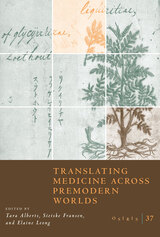
This volume of Osiris turns the analytical lens of translation onto medical knowledge and practices across the premodern world. Understandings of the human body, and of diseases and their cures, were influenced by a range of religious, cultural, environmental, and intellectual factors. As a result, complex systems of translation emerged as people crossed linguistic and territorial boundaries to share not only theories and concepts, but also materials, such as drugs, amulets, and surgical tools. The studies here reveal how instances of translation helped to shape and, in some cases, reimagine these ideas and objects to fit within local frameworks of medical belief.
Translating Medicine across Premodern Worlds features case studies located in geographically and temporally diverse contexts, including ninth-century Baghdad, sixteenth-century Seville, seventeenth-century Cartagena, and nineteenth-century Bengal. Throughout, the contributors explore common themes and divergent experiences associated with a variety of historical endeavors to “translate” knowledge about health and the body across languages, practices, and media. By deconstructing traditional narratives and de-emphasizing well-worn dichotomies, this volume ultimately offers a fresh and innovative approach to histories of knowledge.



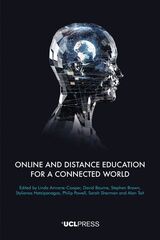
The COVID-19 pandemic led to the widespread adoption of distance and online learning in higher education, which has presented opportunities for large-scale, inclusive, flexible, and engaging learning. This volume, assembled by the University of London’s Centre for Online and Distance Education, addresses the practice and theory of online and distance education, building on knowledge and expertise developed in the university across nearly a century and a half. Contributors explore important principles and highlight successful practices in areas such as course design and pedagogy, online assessment, open education, inclusive practice, and enabling students' voices. Case studies illustrate prominent issues and approaches. Together, the chapters offer current and future leaders and practitioners a practical, productive, practice- and theory-informed account of the present and likely future state of online and distance higher education worldwide.
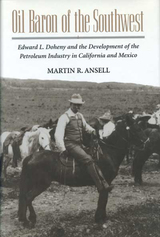

Fallacies, contraries, consistencies.
Aristotle, great Greek philosopher, researcher, reasoner, and writer, born at Stagirus in 384 BC, was the son of a physician. He studied under Plato at Athens and taught there (367–347); subsequently he spent three years at the court of a former pupil in Asia Minor. After some time at Mitylene, in 343–342 he was appointed by King Philip of Macedon to be tutor of his teen-aged son Alexander. After Philip’s death in 336, Aristotle became head of his own school (of “Peripatetics”), the Lyceum at Athens. Because of anti-Macedonian feeling there after Alexander’s death in 323, he withdrew to Chalcis in Euboea, where he died in 322.
Nearly all the works Aristotle prepared for publication are lost; the priceless ones extant are lecture-materials, notes, and memoranda (some are spurious). They can be categorized as follows:
I Practical: Nicomachean Ethics; Great Ethics (Magna Moralia); Eudemian Ethics; Politics; Economics (on the good of the family); On Virtues and Vices.
II Logical: Categories; Analytics (Prior and Posterior); Interpretation; Refutations used by Sophists; Topica.
III Physical: Twenty-six works (some suspect) including astronomy, generation and destruction, the senses, memory, sleep, dreams, life, facts about animals, etc.
IV Metaphysics: on being as being.
V Art: Rhetoric and Poetics.
VI Other works including the Constitution of Athens; more works also of doubtful authorship.
VII Fragments of various works such as dialogues on philosophy and literature; and of treatises on rhetoric, politics, and metaphysics.
The Loeb Classical Library edition of Aristotle is in twenty-three volumes.

Peripatetic cosmology.
Aristotle, great Greek philosopher, researcher, reasoner, and writer, born at Stagirus in 384 BC, was the son of a physician. He studied under Plato at Athens and taught there (367–347); subsequently he spent three years at the court of a former pupil in Asia Minor. After some time at Mitylene, in 343–342 he was appointed by King Philip of Macedon to be tutor of his teen-aged son Alexander. After Philip’s death in 336, Aristotle became head of his own school (of “Peripatetics”), the Lyceum at Athens. Because of anti-Macedonian feeling there after Alexander’s death in 323, he withdrew to Chalcis in Euboea, where he died in 322.
Nearly all the works Aristotle prepared for publication are lost; the priceless ones extant are lecture-materials, notes, and memoranda (some are spurious). They can be categorized as follows:
I Practical: Nicomachean Ethics; Great Ethics (Magna Moralia); Eudemian Ethics; Politics; Economics (on the good of the family); On Virtues and Vices.
II Logical: Categories; Analytics (Prior and Posterior); Interpretation; Refutations used by Sophists; Topica.
III Physical: Twenty-six works (some suspect) including astronomy, generation and destruction, the senses, memory, sleep, dreams, life, facts about animals, etc.
IV Metaphysics: on being as being.
V Art: Rhetoric and Poetics.
VI Other works including the Constitution of Athens; more works also of doubtful authorship.
VII Fragments of various works such as dialogues on philosophy and literature; and of treatises on rhetoric, politics, and metaphysics.
The Loeb Classical Library edition of Aristotle is in twenty-three volumes.

Peripatetic works on the human body and soul.
Aristotle, great Greek philosopher, researcher, reasoner, and writer, born at Stagirus in 384 BC, was the son of a physician. He studied under Plato at Athens and taught there (367–347); subsequently he spent three years at the court of a former pupil in Asia Minor. After some time at Mitylene, in 343–342 he was appointed by King Philip of Macedon to be tutor of his teen-aged son Alexander. After Philip’s death in 336, Aristotle became head of his own school (of “Peripatetics”), the Lyceum at Athens. Because of anti-Macedonian feeling there after Alexander’s death in 323, he withdrew to Chalcis in Euboea, where he died in 322.
Nearly all the works Aristotle prepared for publication are lost; the priceless ones extant are lecture-materials, notes, and memoranda (some are spurious). They can be categorized as follows:
I Practical: Nicomachean Ethics; Great Ethics (Magna Moralia); Eudemian Ethics; Politics; Economics (on the good of the family); On Virtues and Vices.
II Logical: Categories; Analytics (Prior and Posterior); Interpretation; Refutations used by Sophists; Topica.
III Physical: Twenty-six works (some suspect) including astronomy, generation and destruction, the senses, memory, sleep, dreams, life, facts about animals, etc.
IV Metaphysics: on being as being.
V Art: Rhetoric and Poetics.
VI Other works including the Constitution of Athens; more works also of doubtful authorship.
VII Fragments of various works such as dialogues on philosophy and literature; and of treatises on rhetoric, politics, and metaphysics.
The Loeb Classical Library® edition of Aristotle is in twenty-three volumes.
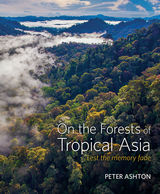
On the Forests of Tropical Asia is the first book to describe the forests of the entire tropical Asian region, from Sind to New Guinea. It opens with chapters on physical geography and geological history and then moves on to address forest and tree structure and dynamics, floristics, and symbiotic organisms, as well as genetics, evolutionary history, species diversity, and human impact. A final chapter covers future policy and practice options for saving what remains. Hundreds of full-color illustrations serve as a lasting testimony to the diverse forests. Ashton combines existing research with his own experience and collaborations, creating a broad, comprehensive understanding of forest variation. By presenting a clear picture of where the forests stand today, he offers a framework for future research, policy, and conservation.
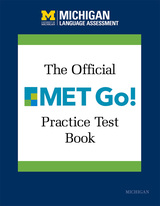
The MET Go! is intended for early adolescents at the middle school to lower-secondary school level who want to measure their general English language proficiency in a variety of linguistic contexts. The test results can be used for educational purposes, such as when finishing an English language course, as a motivational tool to encourage students as they progress in their English study, or as a supporting credential for youth opportunities requiring English skills. It may also be used as a bridge to a higher-level exam such as the MET.
The Official MET Go! Practice Test Book is first book to provide actual practice tests for students preparing to take the MET Go!
The Official MET Go! Practice Test Book includes:
- 4 complete practice tests (Listening, Reading, Writing)
- 4 sets of practice Speaking Test prompts
- tips for practicing the different sections of the tests
- a progress tracking log for recording practice test cores
- actual test form instructions and a sample answer sheet
More information about the MET Go! is available at www.michiganassessment.org.
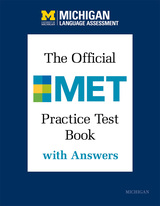
The MET is intended for adults and adolescents at or above a secondary level of education who want to measure their general English language proficiency in a variety of linguistic contexts. The test results can be used for educational purposes, such as when finishing an English language course, or for employment purposes, like when applying for a job or pursuing a promotion that requires an English language qualification.
The Official MET Practice Test Book is the first book to provide actual practice tests for students preparing to take the MET.
The Official MET Practice Test Book with Answers, designed for self-study (information about the Classroom Edition can be found at https://www.press.umich.edu/11390089/official_met_practice_test_book_classroom_edition), includes:
- 4 complete practice tests (Listening, Reading and Grammar, Writing)
- 4 sets of Speaking test prompts
- tips for practicing the different sections of the tests
- a progress tracking log for recording practice test scores
- selected practice test vocabulary lists
- answer keys
- audio transcripts for the Listening section
- Writing test responses with commentary for two of the tests
- Examiner scripts for the Speaking test
- actual test form instructions and a sample answer sheet
The audio for the Listening section can be accessed at www.press.umich.edu/elt/compsite/met
For more information about the MET, go to www.michiganassessment.org
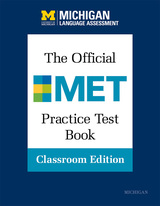
The MET is intended for adults and adolescents at or above a secondary level of education who want to measure their general English language proficiency in a variety of linguistic contexts. The test results can be used for educational purposes, such as when finishing an English language course, or for employment purposes, like when applying for a job or pursuing a promotion that requires an English language qualification.
The Official MET Practice Test Book is the first book to provide specific test-preparation materials for the MET.
The Classroom Edition, designed for school use (the self-study version can be found at https://www.press.umich.edu/11390380/official_met_practice_test_book_with_answers), includes:
- 4 complete practice tests (Listening, Reading and Grammar, Writing)
- 4 sets of Speaking test prompts
- tips for preparing for the different sections of the tests
- a progress tracking log for recording practice test scores
- selected practice test vocabulary lists
- actual test form instructions and a sample answer sheet
For more information about the MET, go to www.michiganassessment.org
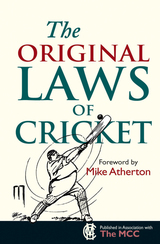
This series of books from the Bodleian Library reproduces the original rules of classic sports, complete with commentary about their historical evolution and adaptation—in attractive, collectible formats. They are informative and often witty companions to the world of sport, bringing the past and present together.
Of all the rules governing sports, the laws of cricket are among the oldest. The first written rules of 1744 survive solely on the border of a piece of linen at the Museum of The Marylebone Cricket Club, the home of cricket. The Original Laws of Cricket reprints the complete text of this original and explores how these early laws shaped the development of the game and in turn how the social dimensions of the game changed the laws.
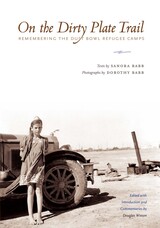
Runner-up, National Council on Public History Book Award, 2008
The 1930s exodus of "Okies" dispossessed by repeated droughts and failed crop prices was a relatively brief interlude in the history of migrant agricultural labor. Yet it attracted wide attention through the publication of John Steinbeck's The Grapes of Wrath (1939) and the images of Farm Security Administration photographers such as Dorothea Lange and Arthur Rothstein. Ironically, their work risked sublimating the subjects—real people and actual experience—into aesthetic artifacts, icons of suffering, deprivation, and despair. Working for the Farm Security Administration in California's migrant labor camps in 1938-39, Sanora Babb, a young journalist and short story writer, together with her sister Dorothy, a gifted amateur photographer, entered the intimacy of the dispossessed farmers' lives as insiders, evidenced in the immediacy and accuracy of their writings and photos. Born in Oklahoma and raised on a dryland farm, the Babb sisters had unparalleled access to the day-by-day harsh reality of field labor and family life.
This book presents a vivid, firsthand account of the Dust Bowl refugees, the migrant labor camps, and the growth of labor activism among Anglo and Mexican farm workers in California's agricultural valleys linked by the "Dirty Plate Trail" (Highway 99). It draws upon the detailed field notes that Sanora Babb wrote while in the camps, as well as on published articles and short stories about the migrant workers and an excerpt from her Dust Bowl novel, Whose Names Are Unknown. Like Sanora's writing, Dorothy's photos reveal an unmediated, personal encounter with the migrants, portraying the social and emotional realities of their actual living and working conditions, together with their efforts to organize and to seek temporary recreation. An authority in working-class literature and history, volume editor Douglas Wixson places the Babb sisters' work in relevant historical and social-political contexts, examining their role in reconfiguring the Dust Bowl exodus as a site of memory in the national consciousness.
Focusing on the material conditions of everyday existence among the Dust Bowl refugees, the words and images of these two perceptive young women clearly show that, contrary to stereotype, the "Okies" were a widely diverse people, including not only Steinbeck's sharecropper "Joads" but also literate, independent farmers who, in the democracy of the FSA camps, found effective ways to rebuild lives and create communities.


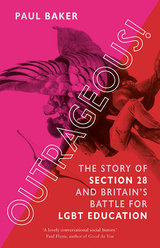
On May 23, 1988, Paul Baker sat down with his family to eat cake on his sixteenth birthday while The Six O’Clock News played in the background. But something was not quite right. There was muffled shouting—“Stop Section 28!”—and a scuffle. The papers would announce: “Beeb Man Sits on Lesbian.”
The next day Section 28 passed into UK law, forbidding local authorities from teaching “of the acceptability of homosexuality as a pretended family relationship.” It would send shockwaves through British society: silencing gay pupils and teachers, while galvanizing mass protests and the formation of the LGBTQ+ rights groups OutRage! and Stonewall.
Outrageous! tells its story: the background to the Act, how the press fanned the flames and what politicians said during debates, how protestors fought back to bring about the repeal of the law in the 2000s, and its eventual legacy. Based on detailed research, interviews with key figures—including Ian McKellen, Michael Cashman, and Angela Mason—and personal recollection, Outrageous! is an impassioned, warm, often moving account of unthinkable prejudice enshrined within the law and of the power of community to overcome it.
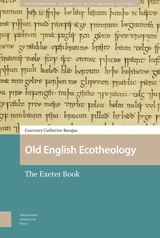
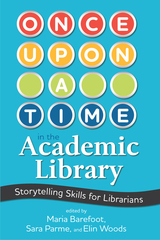
Academic librarians can apply storytelling in the same way that teachers, entertainers, lawyers, and businesspeople have done for centuries, as education within information literacy instruction and as communication in the areas of reference, outreach, management, assessment, and more. Once Upon a Time in the Academic Library explores applications of storytelling across academic librarianship in three sections:
- The Information Literacy Classroom
- The Stacks
- Physical and Virtual Library Spaces
A thorough introduction discusses the historical and theoretical roots of storytelling, as well as the mechanics and social justice applications. Chapter authors demonstrate using storytelling to share diverse viewpoints that connect with their users, and each chapter contains practical examples of how storytelling can be used within the library and cultural considerations for the audience. The first section focuses on storytelling as a pedagogical tool; the others include examples of how storytelling has been used as a communication method in sharing and developing collections, at service points, and in online spaces. Once Upon a Time in the Academic Library can provide ideas and inspiration for incorporating storytelling into your teaching and communication, and inspire you to invent new ways of using it in your work.

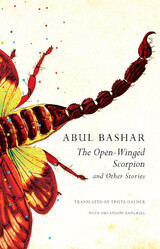

Obsessive Images was first published in 1960. Minnesota Archive Editions uses digital technology to make long-unavailable books once again accessible, and are published unaltered from the original University of Minnesota Press editions.
As Mark Schorer comments, this is "the last, unfinished work of a distinguished, well loved critic, poet, and professor." After the death of Joseph Warren Beach, his colleague and friend William Van O'Connor, professor of English at the University of Minnesota, prepared the unfinished manuscript of this work for publication and wrote the foreword.
The work is primarily a study of certain words, phrases, and images that turn up with unusual frequency in modern American poetry, especially that of the decades of the 1930's and 1940's, and which are used in unusual senses, to carry special symbolisms, or to imply peculiar philosophical attitudes. Since the study is concerned with such recurring images and themes, many poets of distinction, in whose work they are not to be found, are left out, but Professor Beach also discusses the significance of the absence of these poets.
Students and critics will gain insight through this work into the characteristic attitudes of a generation of poets. The book is, moreover, a delight to read, reflecting, as it does, Mr. Beach's own love for the study of poetry. As Professor O'Connor points out, the tone is much more personal than that of Mr. Beach's other books.
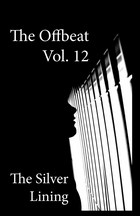
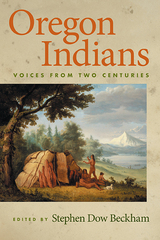
In this deeply researched volume, Stephen Dow Beckham brings together commentary by Native Americans about the events affecting their lives in Oregon. Now available in paperback for the first time, this volume presents first-person accounts of events threatening, changing, and shaping the lives of Oregon Indians, from “first encounters” in the late eighteenth century to modern tribal economies.
The book's seven thematic sections are arranged chronologically and prefaced with introductory essays that provide the context of Indian relations with Euro-Americans and tightening federal policy. Each of the nearly seventy documents has a brief introduction that identifies the event and the speakers involved. Most of the book's selections are little known. Few have been previously published, including treaty council minutes, court and congressional testimonies, letters, and passages from travelers’ journals.
Oregon Indians opens with the arrival of Euro-Americans and their introduction of new technology, weapons, and diseases. The role of treaties, machinations of the Oregon volunteers, efforts of the US Army to protect the Indians but also subdue and confine them, and the emergence of reservation programs to “civilize” them are recorded in a variety of documents that illuminate nineteenth-century Indian experiences.
Twentieth-century documents include Tommy Thompson on the flooding of the Celilo Falls fishing grounds in 1942, as well as Indian voices challenging the "disastrous policy of termination," the state's prohibition on inter-racial marriage, and the final resting ground of Kennewick Man. Selections in the book's final section speak to the changing political atmosphere of the late twentieth century, and suggest that hope, rather than despair, became a possibility for Oregon tribes.
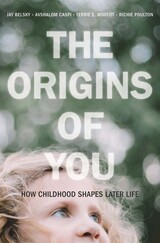
A Marginal Revolution Book of the Year
“Brings the groundbreaking research of the top developmental psychologists of the past quarter-century to a wider audience…A masterpiece!”—Dante Cicchetti, Institute for Child Development at the University of Minnesota
“Deliver[s] a flood of insights around the book’s central question: To what degree do our childhood personalities and behaviors predict our adult selves?”—Wall Street Journal
“One of the best and most important works of the last few years…Fascinating.”—Tyler Cowen, Marginal Revolution
Does childhood temperament predict adult personality? What role do parents play in shaping how a child matures? Is day care bad—or good—for children? Does adolescent delinquency forecast a life of crime? Do genes influence success in life? Is one’s health shaped by childhood experiences? In search of answers to these questions, four leading psychologists dedicated their careers to studying thousands of people, observing them as they grew and emerging with unprecedented insight into what makes us who we are.
They found that human development is not subject to ironclad laws so much as a matter of possibilities and probabilities—multiple forces that together determine the direction of one’s life. The early years do predict who we become, but they do so imperfectly. At once actionable and revelatory, The Origins of You is an invaluable guide for parents, teachers, and anyone working with or caring for children.
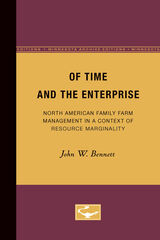

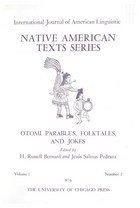
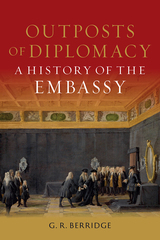
This compelling history traces the evolution of the embassy, from its ancient origins to its enduring presence in the modern world. Beginning with its precursors in antiquity, the book explores the embassy’s emergence on the cusp of the Italian Renaissance, its pinnacle during the nineteenth century, and its navigation through the challenges of twentieth-century conference diplomacy. G. R. Berridge investigates how this European institution adapted its staffing, architecture, and communication methods to changing international landscapes, including the tumultuous wars of religion and encounters in the Far East. He also describes the expansion of the embassy’s responsibilities, such as providing diplomatic cover for intelligence operations. Infused with vibrant anecdotes of remarkable individuals and the creation of influential family dynasties, and illustrated throughout, this book offers a fascinating exploration of the embassy’s rich history.

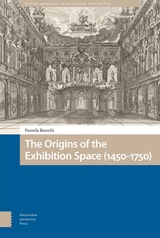

The Old Land and the New was first published in 1965. Minnesota Archive Editions uses digital technology to make long-unavailable books once again accessible, and are published unaltered from the original University of Minnesota Press editions.
These are the journals in English translation of two early Swiss immigrants to America who provided an intriguing picture of life as they saw it in New York, Maryland, Pennsylvania, and Ohio. The book is illustrated with sketches by the Swiss artist, Hans Erni.
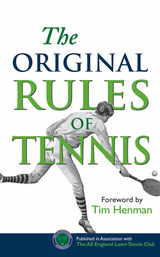
The pristine grass and white uniforms of Wimbledon and the aggressive hard courts of the U.S. Open have inspired tens of thousands of amateur tennis players in North America. Millions of people watch the tournaments each year on television and the stars of recent decades are household names, but relatively few people know the history of the game. In the Middle Ages and the Renaissance it was a “jeu de paume,” a game played at French and English royal courts with hands rather than rackets. The modern game, however, dates from 1874, when Major Walter Clopton Wingfield developed a variation on the game for the amusement of his house guests in Wales. After he laid out the basic rules, the game spread quickly—the first championship at Wimbledon was held in 1877, followed soon after by the first American tournament in 1880.
Published in association with the All England Lawn Tennis Club—better known as Wimbledon—this attractive, collectible book examines the history of the rules of tennis from their first codification to the present day. Included is a fascinating introduction by John Barrett, the BBC’s now retired “voice of tennis” who played in twenty-one consecutive Wimbledon Championships, that looks at the circumstances of the composition of the first rules, their scope, and evolution. The Original Rules of Tennis is a must for spectators and players alike.
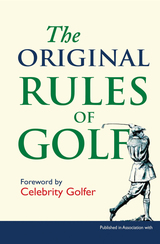
More than 25 million people in the United States alone play golf each year. A game born on the stark, wind-swept landscape of Scotland in the fifteenth century, golf has grown over the centuries into a global phenomenon. It is a sport not only enjoyed by professionals and the spectators of international tournaments, but one enthusiastically enjoyed by amateurs everywhere who socialize with friends and colleagues on their local courses. Yet despite golf’s widespread popularity, few of us truly know its rules, which have grown more complicated and confounding as the game has grown in popularity. Extremely simple by comparison, the very first rules of the game are presented here in a charming, collectible format.
The first known rules of golf were drawn up in 1744 in Edinburgh for the world’s first open golf competition, hosted by the Gentleman Golfers of Edinburgh, who later became the Honourable Company of Edinburgh Golfers. Local golf clubs then adapted the Edinburgh rules for their own use—until 1897 when the Royal and Ancient Golf Club of St. Andrews assumed oversight of the rules, and published the first national set of golf rules. The original Edinburgh and St. Andrews rules are both reprinted here alongside delightful images of the game throughout the centuries. In addition, well-known golf writer Dale Concannon provides a thorough introduction that examines the history of the rules of golf from their first codification in Edinburgh to the present day.
A must-have for anyone who delights in the spirit of the game, The Original Rules of Golf will find fans among golfers and armchair spectators everywhere.
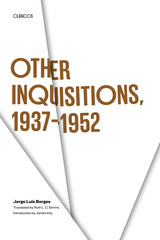
This remarkable book by one of the great writers of the twentieth century includes essays on a proposed universal language, a justification of suicide, a refutation of time, the nature of dreams, and the intricacies of linguistic forms. Borges comments on such literary figures as Pascal, Coleridge, Cervantes, Hawthorne, Whitman, Valéry, Wilde, Shaw, and Kafka. With extraordinary grace and erudition, he ranges in time, place, and subject from Omar Khayyam to Joseph Conrad, from ancient China to modern England, from world revolution to contemporary slang.

Since its inception in 1978, the Ocean Yearbook has proven an invaluable research tool to marine biologists, oceanographers, ocean development specialists, students of international law, as well as analysts of foreign policy and international security.

Selected Documents and Proceedings include:
Report of the International Ocean Institute 1999 - 2000
Oceans and the Law of the Sea Report of the Secretary General, 2000
UN Convention on the Law of the Sea Report
The Hamburg Declaration on the Ocean
The Fiji Declaration on Islands in the New Millennium
The Appendix includes a Directory of Oceans-related Institutions
Since its inception in 1978, the Ocean Yearbook has proven an invaluable research tool to marine biologists, oceanographers, ocean development specialists, students of international law, as well as analysts of foreign policy and international security.

Ocean Yearbook is a collaborative initiative of the International Ocean Institute and the Marine and Environmental Law Programme at Dalhousie University Law School.









Volume 12 focuses on the sustainable development and use of the world's oceans and their resources. Major articles examine the managerial implications of sustainable development in different oceanic regions as well as how they relate to fisheries, coastal ecosystems and genetic and biochemical resources. Current problems associated with marine transportation are also addressed. In addition, the twelfth edition celebrates the entry into force of the United Nations Convention on the Law of the Sea and the recent conclusion of the agreement relating to the conservation and management of straddling and highly migratory fish stocks.

Volume 11 addresses the development of marine resources, along with recent transportation, communication, marine science, and technology developments. Twenty-four articles focus on such topics as sea-based nuclear issues, regional cooperation, transport of liquefied natural gas, along with an analysis of the UN conference on Straddling and Highly Migratory Fish Stocks.






This publication, issued in cooperation with the Selden Society, reproduces completely the Yale edition of 1915–1942, which has long been unobtainable. To it has been added an English translation, the first in almost a century, incorporating many improvements of the text, drawn from a re-examination of the manuscripts and a further identification of Henry de Bracton’s sources, Roman and English.
Volume I contains George E. Woodbine’s prolegomena to his edition, written in 1915, to which Samuel Thorne has added a prefatory note, reclassifying and redating the manuscripts on which the edition was based. Volume II begins the text and translation, which will be completed in Volume III and Volume IV. Notes and indices will appear in Volume V.

This publication, issued in cooperation with the Selden Society, reproduces completely the Yale edition of 1915–1942, which has long been unobtainable. To it has been added an English translation, the first in almost a century, incorporating many improvements of the text, drawn from a re-examination of the manuscripts and a further identification of Henry de Bracton’s sources, Roman and English.
Volume I contains George E. Woodbine’s prolegomena to his edition, written in 1915, to which Samuel Thorne has added a prefatory note, reclassifying and redating the manuscripts on which the edition was based. Volume II begins the text and translation, which will be completed in Volume III and Volume IV. Notes and indices will appear in Volume V.

This publication, issued in cooperation with the Selden Society, reproduces completely the Yale edition of 1915–1942, which has long been unobtainable. To it has been added an English translation, the first in almost a century, incorporating many improvements of the text, drawn from a re-examination of the manuscripts and a further identification of Henry de Bracton’s sources, Roman and English.
Volume I contains George E. Woodbine’s prolegomena to his edition, written in 1915, to which Samuel Thorne has added a prefatory note, reclassifying and redating the manuscripts on which the edition was based. Volume II begins the text and translation, which will be completed in Volume III and Volume IV. Notes and indices will appear in Volume V.

This publication, issued in cooperation with the Selden Society, reproduces completely the Yale edition of 1915–1942, which has long been unobtainable. To it has been added an English translation, the first in almost a century, incorporating many improvements of the text, drawn from a re-examination of the manuscripts and a further identification of Henry de Bracton’s sources, Roman and English.
Volume I contains George E. Woodbine’s prolegomena to his edition, written in 1915, to which Samuel Thorne has added a prefatory note, reclassifying and redating the manuscripts on which the edition was based. Volume II begins the text and translation, which will be completed in Volume III and Volume IV. Notes and indices will appear in Volume V.


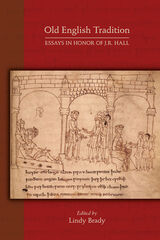
Old English Tradition contains eighteen new essays by leading scholars in the field of Old English literary studies. The collection is centered around five key areas of research—Old English poetics, Anglo-Saxon Christianity, Beowulf, codicology, and early Anglo-Saxon studies—on which the work of scholar J. R. Hall, the volume’s honorand, has been influential over the course of his career.
The volume’s contents range from fresh insights on individual Old English poems such as The Wife’s Lament and Beowulf; new studies in Old English metrics and linguistics; codicological examinations of individual manuscripts; fresh editions of understudied texts; and innovative examinations of the role of early antiquarians in shaping the field of Old English literary studies as we know it today.


Reflecting the fecundity of contemporary scholarship, the current volume should be of extraordinary interest to historians of science, scientists, as well as anyone intrigued by the many ways in which relations between religion and science have been constructed.
Contributors include:
Peter Barker,
John Hedley Brooke,
Geoffrey Cantor,
Margaret G. Cook,
Michael J. Crowe,
Thomas Dixon,
Noah J. Efron,
Richard England,
Martin Fichman,
Maurice A. Finocchiaro,
Menachem Fish,
Bernard R. Goldstein,
Bernard Lightman,
Margaret J. Osler
F. Jamil Ragep,
Phillip R. Sloan,
Stephen Snobelen,
Jitse M. van der Meer,
Stephen J. Wykstra,
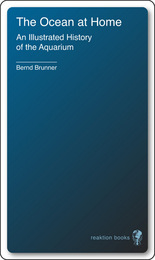
The mysterious world beneath the ocean’s surface and its inhabitants have captivated humanity for centuries—the Egyptians, Greeks, Romans, and ancient Chinese all kept fish in their homes to observe and admire. But it was not until the nineteenth-century invention of the aquarium that the deep was truly domesticated, offering the curious a chance to create an indoor exotic sea world, in miniature.
In The Ocean at Home, Bernd Brunner traces the development of the aquarium from the Victorian era to the present day. Along the way, in this fascinating history, Brunner provides insight into the cultural and social circumstances that accompanied the aquarium’s swift rise in popularity. Brunner tells a compelling story of obsession, discovery, and delight—from the aquarium’s origin as a tool for scientific observation to the Victorian era’s elaborately decorated containers of curiosity, to the great public aquariums that are popular in cities around the world today.
Featuring more than 100 illustrations, this updated edition of The Ocean at Home offers a colorful and captivating look at how a Victorian obsession still enchants many today. Both the owner of a humble goldfish bowl and the dazzled spectator at major public aquariums will find The Ocean at Home an appealing and knowledgable guide to the aquatic worlds we create.

Old Province of Quebec was first published in 1933. Minnesota Archive Editions uses digital technology to make long-unavailable books once again accessible, and are published unaltered from the original University of Minnesota Press editions.
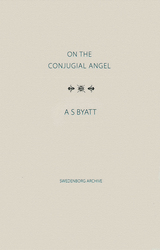
On The Conjugial Angel is sixth in the series of Swedenborg archive pocket books. Edited by Stephen McNeilly, and drawing on miscellaneous material from the Swedenborg archives, the aim of the series is to make available in printed form lectures, interviews and other unique items that would otherwise remain unseen by a broader audience.

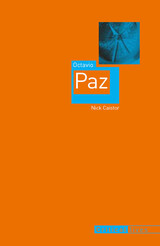
In Octavio Paz, Nicholas Caistor takes a fresh look at Paz’s exquisite poetry and fascinating life. Born during the Mexican Revolution, Paz spent his youth fighting to free Mexico from the ideologies of both the left and right. He traveled to the United States, then to Spain, where he fought with the Republicans against Franco's Nationalists. He eventually served as a diplomat in India before returning to his homeland in 1968, where he again became a vocal opponent of the government. As Caistor demonstrates, Paz’s personal journey in those years was as exciting as his public life. He details here the multiple marriages and passionate friendships that inevitably made their way into Paz’s poetry.
Both concise and insightful, Octavio Paz reveals the life that informs a poetry that is deeply expressive—and distinctly political.
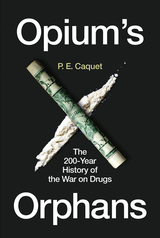
Opium’s Orphans is the first full history of drug prohibition and the “war on drugs.” A no-holds-barred but balanced account, it shows that drug suppression was born of historical accident, not rational design. The war on drugs did not originate in Europe or the United States, and even less with President Nixon, but in China. Two Opium Wars followed by Western attempts to atone for them gave birth to an anti-narcotics order that has come to span the globe. But has the war on drugs succeeded? As opioid deaths and cartel violence run rampant, contestation becomes more vocal, and marijuana is slated for legalization, Opium's Orphans proposes that it is time to go back to the drawing board.

Cultivated farming advice.
Cato (M. Porcius Cato) the elder (234–149 BC) of Tusculum, statesman and soldier, was the first important writer in Latin prose. His speeches, works on jurisprudence and the art of war, his precepts to his son on various subjects, and his great historical work on Rome and Italy are lost. But we have his De Agricultura; terse, severely wise, grimly humorous, it gives rules in various aspects of a farmer’s economy, including even medical and cooking recipes, and reveals interesting details of domestic life.
Varro (M. Terentius) of Reate (116–27 BC), renowned for his vast learning, was an antiquarian, historian, philologist, student of science, agriculturist, and poet. He was a republican who was reconciled to Julius Caesar and was marked out by him to supervise an intended national library. Of Varro’s more than seventy works involving hundreds of volumes we have only one on agriculture and country affairs (Rerum Rusticarum) and part of his work on the Latin language (De Lingua Latina; LCL 333, 334), though we know much about his Satires. Each of the three books on country affairs begins with an effective mise en scene and uses dialogue. The first book deals with agriculture and farm management, the second with sheep and oxen, the third with poultry and the keeping of other animals large and small, including bees and fish ponds. There are lively interludes and a graphic background of political events.

A Roman layman’s account of medicine in his time.
A. Cornelius Celsus was author, probably during the reign of the Roman Emperor Tiberius (AD 14–37), of a general encyclopedia of agriculture, medicine, military arts, rhetoric, philosophy, and jurisprudence, in that order of subjects. Of all this great work there survives only the eight books on medicine (De Medicina).
In Book I, after an excellent survey of Greek schools (Dogmatic, Methodic, Empiric) of medicine come sensible dietetics that will always be applicable. Book II deals with prognosis, diagnosis of symptoms (which he stresses strongly), and general therapeutics. Book III addresses internal ailments, fevers, and general diseases. Book IV treats local bodily diseases. Next come two pharmacological books, Book V on treatment by drugs of general diseases, and Book VI on local diseases. Books VII and VIII deal with surgery; these books contain accounts of many operations, including amputation.
Celsus was not a professional doctor of medicine or a surgeon, but a practical layman whose On Medicine, written in a clear and neat style for lay readers, is partly a result of his medical treatment of his household (slaves included), and partly a presentation of information gained from many Greek authorities. From no other source can we learn so much of the condition of medical science up to his own time.
The Loeb Classical Library edition of Celsus is in three volumes.

A Roman layman’s account of medicine in his time.
A. Cornelius Celsus was author, probably during the reign of the Roman Emperor Tiberius (AD 14–37), of a general encyclopedia of agriculture, medicine, military arts, rhetoric, philosophy, and jurisprudence, in that order of subjects. Of all this great work there survives only the eight books on medicine (De Medicina).
In Book I, after an excellent survey of Greek schools (Dogmatic, Methodic, Empiric) of medicine come sensible dietetics that will always be applicable. Book II deals with prognosis, diagnosis of symptoms (which he stresses strongly), and general therapeutics. Book III addresses internal ailments, fevers, and general diseases. Book IV treats local bodily diseases. Next come two pharmacological books, Book V on treatment by drugs of general diseases, and Book VI on local diseases. Books VII and VIII deal with surgery; these books contain accounts of many operations, including amputation.
Celsus was not a professional doctor of medicine or a surgeon, but a practical layman whose On Medicine, written in a clear and neat style for lay readers, is partly a result of his medical treatment of his household (slaves included), and partly a presentation of information gained from many Greek authorities. From no other source can we learn so much of the condition of medical science up to his own time.
The Loeb Classical Library edition of Celsus is in three volumes.

A Roman layman’s account of medicine in his time.
A. Cornelius Celsus was author, probably during the reign of the Roman Emperor Tiberius (AD 14–37), of a general encyclopedia of agriculture, medicine, military arts, rhetoric, philosophy, and jurisprudence, in that order of subjects. Of all this great work there survives only the eight books on medicine (De Medicina).
In Book I, after an excellent survey of Greek schools (Dogmatic, Methodic, Empiric) of medicine come sensible dietetics that will always be applicable. Book II deals with prognosis, diagnosis of symptoms (which he stresses strongly), and general therapeutics. Book III addresses internal ailments, fevers, and general diseases. Book IV treats local bodily diseases. Next come two pharmacological books, Book V on treatment by drugs of general diseases, and Book VI on local diseases. Books VII and VIII deal with surgery; these books contain accounts of many operations, including amputation.
Celsus was not a professional doctor of medicine or a surgeon, but a practical layman whose On Medicine, written in a clear and neat style for lay readers, is partly a result of his medical treatment of his household (slaves included), and partly a presentation of information gained from many Greek authorities. From no other source can we learn so much of the condition of medical science up to his own time.
The Loeb Classical Library edition of Celsus is in three volumes.

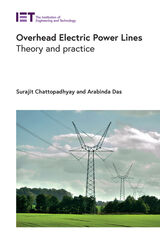

The Ocean Yearbook is an invaluable research tool for marine biologists, oceanographers, students of international law, and analysts of foreign policy and international security.

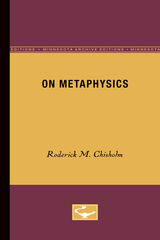


Three rhetorical treatises.
Cicero (Marcus Tullius, 106–43 BC), Roman lawyer, orator, politician and philosopher, of whom we know more than of any other Roman, lived through the stirring era that saw the rise, dictatorship, and death of Julius Caesar in a tottering republic. In his political speeches especially and in his correspondence we see the excitement, tension and intrigue of politics and the part he played in the turmoil of the time. Of about 106 speeches, delivered before the Roman people or the Senate if they were political, before jurors if judicial, fifty-eight survive (a few of them incompletely). In the fourteenth century Petrarch and other Italian humanists discovered manuscripts containing more than 900 letters of which more than 800 were written by Cicero and nearly 100 by others to him. These afford a revelation of the man all the more striking because most were not written for publication. Six rhetorical works survive and another in fragments. Philosophical works include seven extant major compositions and a number of others; and some lost. There is also poetry, some original, some as translations from the Greek.
The Loeb Classical Library edition of Cicero is in twenty-nine volumes.

The statesman on statecraft.
Cicero (Marcus Tullius, 106–43 BC), Roman lawyer, orator, politician, and philosopher, of whom we know more than of any other Roman, lived through the stirring era that saw the rise, dictatorship, and death of Julius Caesar in a tottering republic. In his political speeches especially and in his correspondence we see the excitement, tension, and intrigue of politics and the part he played in the turmoil of the time. Of about 106 speeches, delivered before the Roman people or the Senate if they were political, before jurors if judicial, fifty-eight survive (a few of them incompletely). In the fourteenth century Petrarch and other Italian humanists discovered manuscripts containing more than 900 letters of which more than 800 were written by Cicero and nearly 100 by others to him. These afford a revelation of the man all the more striking because most were not written for publication. Six rhetorical works survive and another in fragments. Philosophical works include seven extant major compositions and a number of others; and some lost. There is also poetry, some original, some as translations from the Greek.
The Loeb Classical Library edition of Cicero is in twenty-nine volumes.

The ethics of a statesman.
Cicero (Marcus Tullius, 106–43 BC), Roman lawyer, orator, politician and philosopher, of whom we know more than of any other Roman, lived through the stirring era that saw the rise, dictatorship, and death of Julius Caesar in a tottering republic. In his political speeches especially and in his correspondence we see the excitement, tension and intrigue of politics and the part he played in the turmoil of the time. Of about 106 speeches, delivered before the Roman people or the Senate if they were political, before jurors if judicial, fifty-eight survive (a few of them incompletely). In the fourteenth century Petrarch and other Italian humanists discovered manuscripts containing more than 900 letters of which more than 800 were written by Cicero and nearly 100 by others to him. These afford a revelation of the man all the more striking because most were not written for publication. Six rhetorical works survive and another in fragments. Philosophical works include seven extant major compositions and a number of others; and some lost. There is also poetry, some original, some as translations from the Greek.
The Loeb Classical Library edition of Cicero is in twenty-nine volumes.
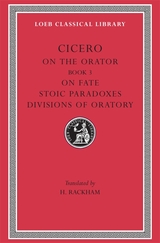
The philosopher-statesman on ethics and rhetoric.
Cicero (Marcus Tullius, 106–43 BC), Roman lawyer, orator, politician and philosopher, of whom we know more than of any other Roman, lived through the stirring era that saw the rise, dictatorship, and death of Julius Caesar in a tottering republic. In his political speeches especially and in his correspondence we see the excitement, tension and intrigue of politics and the part he played in the turmoil of the time. Of about 106 speeches, delivered before the Roman people or the Senate if they were political, before jurors if judicial, fifty-eight survive (a few of them incompletely). In the fourteenth century Petrarch and other Italian humanists discovered manuscripts containing more than 900 letters of which more than 800 were written by Cicero and nearly 100 by others to him. These afford a revelation of the man all the more striking because most were not written for publication. Six rhetorical works survive and another in fragments. Philosophical works include seven extant major compositions and a number of others; and some lost. There is also poetry, some original, some as translations from the Greek.
The Loeb Classical Library edition of Cicero is in twenty-nine volumes.

The philosopher-statesman on theology and epistemology.
Cicero (Marcus Tullius, 106–43 BC), Roman lawyer, orator, politician, and philosopher, of whom we know more than of any other Roman, lived through the stirring era that saw the rise, dictatorship, and death of Julius Caesar in a tottering republic. In his political speeches especially and in his correspondence we see the excitement, tension, and intrigue of politics and the part he played in the turmoil of the time. Of about 106 speeches, delivered before the Roman people or the Senate if they were political, before jurors if judicial, fifty-eight survive (a few of them incompletely). In the fourteenth century Petrarch and other Italian humanists discovered manuscripts containing more than 900 letters of which more than 800 were written by Cicero and nearly 100 by others to him. These afford a revelation of the man all the more striking because most were not written for publication. Six rhetorical works survive and another in fragments. Philosophical works include seven extant major compositions and a number of others; and some lost. There is also poetry, some original, some as translations from the Greek.
The Loeb Classical Library edition of Cicero is in twenty-nine volumes.

The philosopher-statesman on Epicureanism, Stoicism, and the Old Academy.
Cicero (Marcus Tullius, 106–43 BC), Roman lawyer, orator, politician, and philosopher, of whom we know more than of any other Roman, lived through the stirring era that saw the rise, dictatorship, and death of Julius Caesar in a tottering republic. In his political speeches especially and in his correspondence we see the excitement, tension, and intrigue of politics and the part he played in the turmoil of the time. Of about 106 speeches, delivered before the Roman people or the Senate if they were political, before jurors if judicial, fifty-eight survive (a few of them incompletely). In the fourteenth century Petrarch and other Italian humanists discovered manuscripts containing more than 900 letters of which more than 800 were written by Cicero and nearly 100 by others to him. These afford a revelation of the man all the more striking because most were not written for publication. Six rhetorical works survive and another in fragments. Philosophical works include seven extant major compositions and a number of others; and some lost. There is also poetry, some original, some as translations from the Greek.
The Loeb Classical Library edition of Cicero is in twenty-nine volumes.

The philosopher-statesman on ethics and rhetoric.
Cicero (Marcus Tullius, 106–43 BC), Roman lawyer, orator, politician and philosopher, of whom we know more than of any other Roman, lived through the stirring era that saw the rise, dictatorship, and death of Julius Caesar in a tottering republic. In his political speeches especially and in his correspondence we see the excitement, tension and intrigue of politics and the part he played in the turmoil of the time. Of about 106 speeches, delivered before the Roman people or the Senate if they were political, before jurors if judicial, fifty-eight survive (a few of them incompletely). In the fourteenth century Petrarch and other Italian humanists discovered manuscripts containing more than 900 letters of which more than 800 were written by Cicero and nearly 100 by others to him. These afford a revelation of the man all the more striking because most were not written for publication. Six rhetorical works survive and another in fragments. Philosophical works include seven extant major compositions and a number of others; and some lost. There is also poetry, some original, some as translations from the Greek.
The Loeb Classical Library edition of Cicero is in twenty-nine volumes.
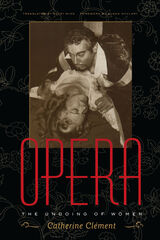

Our Long Heritage was first published in 1955. Minnesota Archive Editions uses digital technology to make long-unavailable books once again accessible, and are published unaltered from the original University of Minnesota Press editions.
This collection of readings, selected from the books and documents that were the major sources of American ideas and beliefs during the period of the founding of the democracy from 1750 to 1780, demonstrates that America has a long heritage behind its social and political philosophy. The excerpts are from the works that represent four different cultural or historical heritage, and they are presented in this order: the classical heritage, the English tradition to 1700, the continental stream, and the eighteenth century, both British and American. Mr. Clough, a former professor of English at the University of Wyoming, provides introductory and explanatory comment throughout the volume. The first book of its kind, it should be particularly useful in American studies programs.

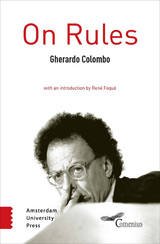
On Rules is the culmination of decades of thinking about and working within the law as both an ideal and a realm of practical action. Gherardo Colombo brings to his rich philosophical analysis of the culture of justice thirty years of experience in the Italian judiciary, which saw him head up numerous important and sensitive commissions and inquiries. His exploration of the concept and application of rules of justice is powerful and clear: if we don’t root our experience in a fundamental respect for rules, we cannot have a functioning, just society.

A Roman farmer on farming.
Columella (Lucius Iunius Moderatus) of Gades (Cadiz) lived in the reigns of the first emperors to about AD 70. He moved early in life to Italy where he owned farms and lived near Rome. It is probable that he did military service in Syria and Cilicia and that he died at Tarentum.
Columella’s On Agriculture (De re rustica) is the most comprehensive, systematic, and detailed of Roman agricultural works. Book 1 covers choice of farming site; water supply; buildings; staff. 2: Plowing; fertilizing; care of crops. 3–5: Cultivation, grafting, and pruning of fruit trees, vines, and olives. 6: Acquisition, breeding, and rearing of oxen, horses, and mules; veterinary medicine. 7: Sheep, goats, pigs, and dogs. 8: Poultry; fish ponds. 9: Bee-keeping. 10 (in hexameter poetry): Gardening. 11: Duties of the overseer of a farm; calendar for farm work; more on gardening. 12: Duties of the overseer’s wife; manufacture of wines; pickling; preserving. There is also a separate treatise, Trees (De arboribus), on vines and olives and various trees, perhaps part of an otherwise lost work written before On Agriculture.
The Loeb Classical Library edition of Columella is in three volumes.

A Roman farmer on farming.
Columella (Lucius Iunius Moderatus) of Gades (Cadiz) lived in the reigns of the first emperors to about AD 70. He moved early in life to Italy where he owned farms and lived near Rome. It is probable that he did military service in Syria and Cilicia and that he died at Tarentum.
Columella’s On Agriculture (De re rustica) is the most comprehensive, systematic, and detailed of Roman agricultural works. Book 1 covers choice of farming site; water supply; buildings; staff. 2: Plowing; fertilizing; care of crops. 3–5: Cultivation, grafting, and pruning of fruit trees, vines, and olives. 6: Acquisition, breeding, and rearing of oxen, horses, and mules; veterinary medicine. 7: Sheep, goats, pigs, and dogs. 8: Poultry; fish ponds. 9: Bee-keeping. 10 (in hexameter poetry): Gardening. 11: Duties of the overseer of a farm; calendar for farm work; more on gardening. 12: Duties of the overseer’s wife; manufacture of wines; pickling; preserving. There is also a separate treatise, Trees (De arboribus), on vines and olives and various trees, perhaps part of an otherwise lost work written before On Agriculture.
The Loeb Classical Library edition of Columella is in three volumes.

A Roman farmer on farming.
Columella (Lucius Iunius Moderatus) of Gades (Cadiz) lived in the reigns of the first emperors to about AD 70. He moved early in life to Italy where he owned farms and lived near Rome. It is probable that he did military service in Syria and Cilicia and that he died at Tarentum.
Columella’s On Agriculture (De re rustica) is the most comprehensive, systematic, and detailed of Roman agricultural works. Book 1 covers choice of farming site; water supply; buildings; staff. 2: Plowing; fertilizing; care of crops. 3–5: Cultivation, grafting, and pruning of fruit trees, vines, and olives. 6: Acquisition, breeding, and rearing of oxen, horses, and mules; veterinary medicine. 7: Sheep, goats, pigs, and dogs. 8: Poultry; fish ponds. 9: Bee-keeping. 10 (in hexameter poetry): Gardening. 11: Duties of the overseer of a farm; calendar for farm work; more on gardening. 12: Duties of the overseer’s wife; manufacture of wines; pickling; preserving. There is also a separate treatise, Trees (De arboribus), on vines and olives and various trees, perhaps part of an otherwise lost work written before On Agriculture.
The Loeb Classical Library edition of Columella is in three volumes.
READERS
Browse our collection.
PUBLISHERS
See BiblioVault's publisher services.
STUDENT SERVICES
Files for college accessibility offices.
UChicago Accessibility Resources
home | accessibility | search | about | contact us
BiblioVault ® 2001 - 2024
The University of Chicago Press









